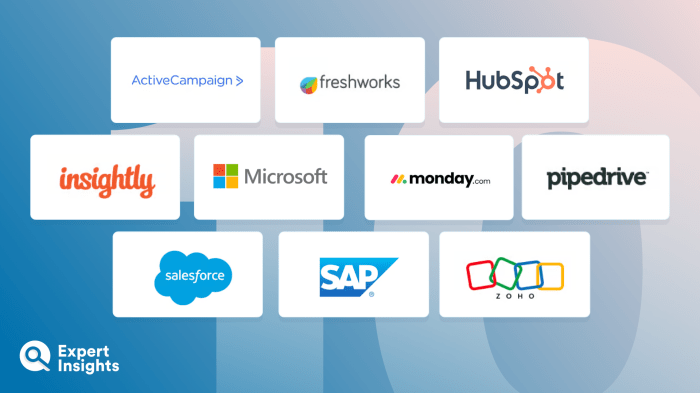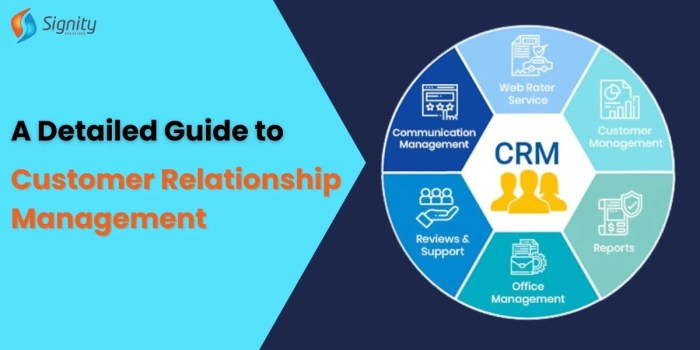Customer service crm software – In today’s competitive landscape, exceptional customer service is no longer a luxury; it’s a necessity. To manage the complexities of modern customer interactions effectively, businesses rely heavily on Customer Service CRM (Customer Relationship Management) software. This comprehensive guide delves into the world of customer service CRM, exploring its features, benefits, selection criteria, and frequently asked questions.

Source: expertinsights.com
Understanding Customer Service CRM Software
Customer service CRM software is a powerful tool that centralizes all customer interactions, providing a 360-degree view of each customer. This centralized system allows businesses to track customer interactions across various channels, including email, phone, social media, and live chat. By consolidating this information, businesses gain valuable insights into customer behavior, preferences, and pain points, enabling them to personalize interactions and improve overall customer satisfaction.
Key Features of Customer Service CRM Software
- Ticketing System: Efficiently manage and track customer inquiries, ensuring timely responses and resolution. Features often include ticket prioritization, assignment, and automated routing.
- Knowledge Base: A centralized repository of information, including FAQs, troubleshooting guides, and product manuals, empowering customers to self-serve and reducing the burden on support agents.
- Live Chat: Provide instant support to customers through real-time chat functionality, enhancing customer engagement and satisfaction.
- Email Management: Streamline email communication with customers, automating responses, tracking interactions, and ensuring timely follow-ups.
- Social Media Integration: Monitor and manage customer interactions across various social media platforms, allowing businesses to address issues and engage with customers in real-time.
- Reporting and Analytics: Gain valuable insights into customer behavior, support performance, and key metrics, enabling data-driven decision-making to improve customer service strategies.
- Customer Segmentation: Group customers based on shared characteristics (demographics, purchase history, etc.) to personalize communication and offer targeted support.
- Automation and Workflow: Automate repetitive tasks, such as assigning tickets and sending follow-up emails, freeing up agents to focus on complex issues.
- Integration with other systems: Seamlessly integrate with other business systems, such as e-commerce platforms, marketing automation tools, and accounting software, for a holistic view of the customer journey.
Benefits of Implementing Customer Service CRM Software
The advantages of using a customer service CRM extend far beyond simply organizing customer data. Implementing such a system can significantly improve various aspects of a business:

Source: signitysolutions.com
- Improved Customer Satisfaction: Faster response times, personalized interactions, and efficient issue resolution lead to higher customer satisfaction and loyalty.
- Increased Efficiency and Productivity: Automation and streamlined workflows free up agents to focus on complex issues, increasing overall productivity.
- Reduced Operational Costs: Improved efficiency, self-service options, and reduced need for manual processes contribute to lower operational costs.
- Better Team Collaboration: Centralized information and shared access enable seamless collaboration among support agents.
- Data-Driven Decision Making: Detailed reports and analytics provide valuable insights into customer behavior and support performance, enabling data-driven improvements.
- Enhanced Customer Retention: Improved customer service leads to increased customer loyalty and reduced churn.
- Scalability: CRM systems can easily scale to accommodate business growth and increasing customer volumes.
Choosing the Right Customer Service CRM Software
Selecting the appropriate customer service CRM requires careful consideration of various factors:
Factors to Consider When Choosing a Customer Service CRM:, Customer service crm software
- Budget: Consider the cost of the software, including licensing fees, implementation costs, and ongoing maintenance.
- Features: Identify the essential features required to meet your specific business needs and customer service goals.
- Scalability: Ensure the chosen CRM can accommodate future growth and increasing customer volumes.
- Integration capabilities: Check for seamless integration with other business systems, such as e-commerce platforms and marketing automation tools.
- Ease of use: Select a user-friendly system that is easy for your support team to learn and use effectively.
- Customer support: Ensure the vendor provides adequate customer support and documentation.
- Security: Prioritize a CRM with robust security features to protect sensitive customer data.
- Customization options: Consider the level of customization offered to tailor the CRM to your specific business requirements.
Popular Customer Service CRM Software Options
The market offers a wide range of customer service CRM solutions, catering to businesses of all sizes. Some popular options include:
- Zendesk: A widely used platform known for its robust features, scalability, and ease of use.
- Salesforce Service Cloud: A powerful and comprehensive CRM solution ideal for larger enterprises.
- Freshdesk: A popular choice for businesses seeking a balance between functionality and affordability.
- HubSpot Service Hub: A comprehensive solution integrated with HubSpot’s marketing and sales platforms.
- Zoho CRM: A versatile and affordable CRM offering a wide range of features.
Frequently Asked Questions (FAQ)
Here are some frequently asked questions about customer service CRM software:
- Q: What is the cost of customer service CRM software? A: The cost varies significantly depending on the vendor, features, and number of users. Some offer free plans with limited features, while others charge monthly or annual subscription fees.
- Q: How long does it take to implement customer service CRM software? A: Implementation time varies depending on the complexity of the system and the size of the business. It can range from a few weeks to several months.
- Q: What are the key metrics to track with a customer service CRM? A: Key metrics include customer satisfaction (CSAT), Net Promoter Score (NPS), average resolution time, first contact resolution rate, and ticket volume.
- Q: Can customer service CRM software integrate with other business systems? A: Yes, most modern CRM systems offer robust integration capabilities with other business tools, such as e-commerce platforms, marketing automation software, and accounting software.
- Q: How can I choose the right CRM for my business? A: Consider your budget, required features, scalability needs, integration requirements, ease of use, and customer support when selecting a CRM.
Conclusion
Customer service CRM software is an invaluable asset for businesses aiming to deliver exceptional customer experiences. By centralizing customer interactions, automating workflows, and providing valuable insights, CRM systems empower businesses to improve efficiency, enhance customer satisfaction, and drive growth. Choosing the right CRM requires careful consideration of your specific needs and goals. Investing in a robust and user-friendly system can significantly improve your customer service operations and contribute to long-term success.
References
Call to Action
Ready to transform your customer service operations? Explore the leading customer service CRM solutions today and find the perfect fit for your business needs. Click here to request a demo or learn more!
Detailed FAQs
What are the key features of customer service CRM software?
Key features typically include ticket management, contact management, communication tools (email, chat, phone integration), reporting and analytics dashboards, automation workflows, and customer segmentation capabilities.
How much does customer service CRM software cost?
Pricing varies widely depending on the vendor, features included, and the number of users. Options range from free, basic plans to enterprise-level solutions with substantial monthly or annual fees.
How do I choose the right CRM software for my business?
Consider your business size, budget, specific needs (e.g., integration with existing systems), and the number of users when selecting a CRM. Try free trials or demos to assess usability and features before committing.
What is the learning curve for using customer service CRM software?
The learning curve varies depending on the software’s complexity and user-friendliness. Many CRMs offer training resources and tutorials to facilitate onboarding and ongoing support.
